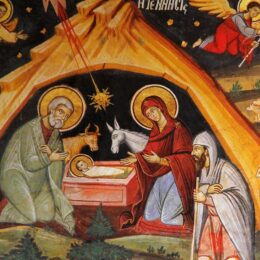Human Events | Deroy Murdock | Nov. 30, 2007
Global-warming enthusiasts should clarify why America was hotter during the less-developed Great Depression, yet cooler in purportedly carbon-choked 1998. In fact, 2000, 2002, 2003, and 2004 were cooler than 1900 — three years before the launch of the Ford Motor Company.
[…]
For starters, U.S. temperature data suffer from the “garbage in, garbage out” syndrome. As surfacestations.org meteorologist Anthony Watts discovered, numerous NASA and National Oceanic and Space Administration temperature sensors are situated not in open fields at uniform heights, as required, but near parking lots, beside central-air exhaust ducts, and even above barbecue grills. These artificially elevate temperature reports.
Since 1970, previously whitewashed temperature sites have been painted with semi-gloss latex. Because it absorbs more heat, Heartland Institute scholar James Taylor wrote in November’s Environment & Climate News, “latex paint at official temperature stations may account for half of the U.S. warming reported since 1970.” Thus, America could reverse half the detected post-1970 warming that aggravates climate activists, simply by stripping this latex paint and whitewashing these observation structures.
Stranger still, NASA adopted a new technique in 2000 to calculate average annual temperatures. NASA essentially gave a 0.27 degrees Fahrenheit (0.15 degrees Centigrade) “bonus” to readings for the last seven years.
However, Canadian statistical analyst Steve McIntyre of ClimateAudit.org caught NASA’s mathematical mistake. After the space agency admitted and corrected its glitch, America’s warmest year shifted from 1998 to 1934.
[…]
“The alarmists who trumpeted recent years as ‘warmest ever!!!’ in the United States (by a mere tenth of a degree) now dismiss this reversal — 2000 and subsequent years being cooler than 1900 — as just being a tenth of a degree or so,” said Competitive Enterprise Institute scholar Chris Horner. “Well, either that’s a big deal whichever direction it falls, or it isn’t. Which time are you lying?”
. . . more



